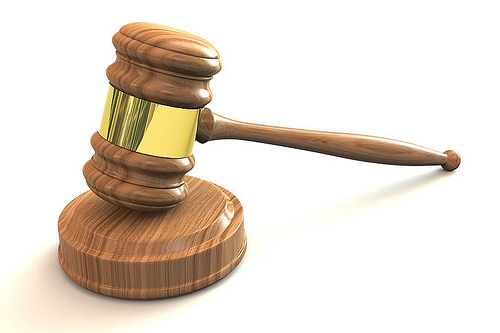Editors should look for and flag legal concerns in the content they edit, but should not—cannot—be held ultimately responsible for its publication.

It’s natural that a writer/publisher’s lawyer would want to make others responsible (via a contract) for legal issues such as copyright infringement or libel; some might even argue that it is their responsibility to try. The contract they present might put the editor on the line for damages to both the writer/publisher and to the owner of the content that was used without permission or to the person who was libelled, etc. Such clauses are often found under an “indemnity” heading or in the requirement to obtain errors and omissions (E&O) insurance.
It’s absurd to make the editor legally responsible, though. The content editor rarely has final say, and the editor who flags a concern likely doesn’t get a look at what the writer approves to go into print. Second, a content editor (whether substantive, stylistic, line, or copy editor, or indeed a proofreader) is not the one most able to pay damages.
What’s the Official Requirement?
To determine what constitutes “due diligence” when content editing (as opposed to managing editor roles) look to the standards laid out by professional associations:
- The Professional Editorial Standards published by Editors Canada stipulate (in standard A9.1) that an editor should flag legal concerns, but do not give the editor further responsibility.
- There is similar wording in standard A4.1 of the Australian standards for editing practice put out by the Institute of Professional Editors.
- The Editorial Syllabus from SfEP (the UK association for editors) also says that editors need to be aware of legal issues (standard 1.10).
None of these standards state that the editor should be responsible for legal compliance.
Legal Limits of Liability
“The little guy can’t be the one held responsible” is the legal principle followed in some jurisdictions (and jurisdictions can vary wildly on most matters). Courts in such locales won’t agree that a person who relied on Big Corp for a living can absolve Big Corp of responsibility and take all the blame. Neither would a court gladly agree that the least able to pay is the one who should be paying damages in a settlement. Or so I’m told; I am not a lawyer.
In this light, some lawyers have advised me and several other editors in vastly distant locales against getting E&O insurance since it makes the editor an attractive target in the event of a lawsuit (since the insurance means the editor will be able to pay damages). So, in some viewpoints, not having insurance is a step towards preventing a lawsuit.
Should You Sign That Contract?
Talk to your lawyer and find out your local rights (or your rights in whichever jurisdiction the contract is assigned). Be sure to explain to the lawyer you consult what your role is in the publishing process, as so many tasks are lumped under the title of “editing.” Check with your area legal school; many schools have free community outreach services that will explain concepts such as these as well as their treatment in your jurisdiction.
You always have the right to ask for changes, and you can always strike out and initial clauses you don’t agree to or otherwise request amendments. Whether or not the client agrees to your changes is a matter up for negotiation.
Should You Buy E&O for Before Editing?
Consult your lawyer before buying E&O insurance. If your insurer will quote on E&O, add that cost to your estimate; an appreciable number of clients will find they can waive this contract requirement after all, once they see the cost.
Perhaps the publisher and their managing editor (of whatever title) could be argued to have some responsibility for ensuring that no legal infringement occurs. Only editors at those levels have any real authority to dictate what makes it into print. Such editors and their bosses should probably get insurance to cover such liability and ensure that their processes formally address the flags their content editors raise, probably in consultation with their lawyers.
Again, I am not a lawyer and I don’t know your local laws; my bias is Canadian, moreover. Consider the above thoughts when consulting your local legal expert. Read more about contracts on this blog.


